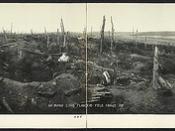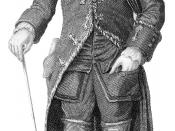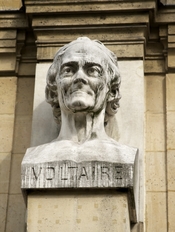The eighteenth century is the century of Chaotic and Revolution rather than ÃÂthe age of EnlightenmentÃÂ as many cultural historians described. The Revolution in France, the Rococo style as well as the intellectual developments at this time marked the astounding point in humanÃÂs history. Lawrence in his book Culture and Values A Survey of the Humanities, said that "the literature of the eighteenth century was generally seriousÃÂ (439) ; we talk about Pope with the trust in the humanÃÂs experience; we talk about Swift with his ÃÂsavage indignationÃÂ toward men and we talk about Voltaire with his famous ÃÂfreedom of thoughtÃÂ.
First, we talk about Pope with his belief in the humanÃÂs nature. He was an Augustans and his writing brought out many developing magnificent idea differed from those writers at that time. At that time, ÃÂThe appeal of Neo-Classical literature was particularly strong in EnglandÃÂ (430) and thus many writers at that time followed that Classical learning blindly.
But not for Pope since ÃÂhis awareness that the dry bones of the Classical learning needed to have life breathed into themÃÂ (431). Theory is theory since it is always difficult for the practical use. Theory is necessary for it is the frame of bone for us to live but it does not mean we are just be humans by the ÃÂtheoryÃÂ. Human being, as Pope said, need the nature: ÃÂnot in the sense of the natural world but in the sense of that which is universal and unchanging in human experienceÃÂ (431). He wanted to breath the life to the ÃÂdry bonesÃÂ ÃÂ the Old Learning. Time is changing, the society as well as the humanÃÂs value change also. The old Roman Nation is good, the ancient teaching is good, Classical learning is good but none of them...


